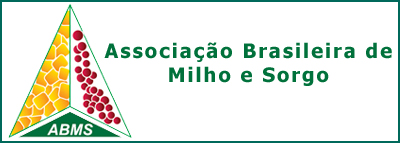A NEW BACULOVIRUS ISOLATE THAT DOES NOT CAUSE THE LIQUEFACTION OF THE INTEGUMENT IN Spodoptera frugiperda LIQUEFACTION OF THE INTEGUMENT IN Spodoptera frugiperda DEAD LARVAE
DOI:
https://doi.org/10.18512/1980-6477/rbms.v7n01p%25pPalavras-chave:
lagarta-do-cartuchoResumo
The large-scale production of Baculovirus to control fall armyworm, Spodoptera frugiperda, presents many limitations. The most important limiting factor is that the baculovirus, which infects fall armyworm, causes liquefaction of the integument immediately after death. This disruption of the integument difficultates the large scale production because dead insect must be frozen before being harvested. This fact implies in high lab work need, increasing the cost of the biopesticide. This problem was overcome by the discovery of a new baculovirus nucleopolyhedrovirus (NPV) isolate in Cascavel/PR, that doesn’t cause liquefaction of the integument (isolate 6NR) immediately after the insect death. This is an extremely important factor in a large-scale baculovirus production. In addition, mortality caused by isolate 6NR on 6-day-old-larvae was above 93% (SEM=0.7%), the average weight dead larva was 116.21 mg (SEM=22.9), the larval equivalent and weight equivalent/ha were 15.04 g (SEM=1.2) and 140.32 larvae (SEM=20.1), respectively.
Downloads
Publicado
Como Citar
Edição
Seção
Licença
Autores que publicam nesta revista concordam com os seguintes termos:- Autores mantém os direitos autorais e concedem à revista o direito de primeira publicação, com o trabalho simultaneamente licenciado sob a Creative Commons Attribution License que permitindo o compartilhamento do trabalho com reconhecimento da autoria do trabalho e publicação inicial nesta revista.
- Autores têm autorização para assumir contratos adicionais separadamente, para distribuição não-exclusiva da versão do trabalho publicada nesta revista (ex.: publicar em repositório institucional ou como capítulo de livro), com reconhecimento de autoria e publicação inicial nesta revista.
- Autores têm permissão e são estimulados a publicar e distribuir seu trabalho online (ex.: em repositórios institucionais ou na sua página pessoal) a qualquer ponto antes ou durante o processo editorial, já que isso pode gerar alterações produtivas, bem como aumentar o impacto e a citação do trabalho publicado



